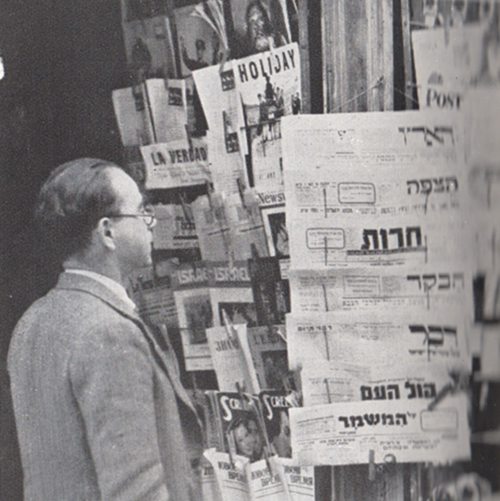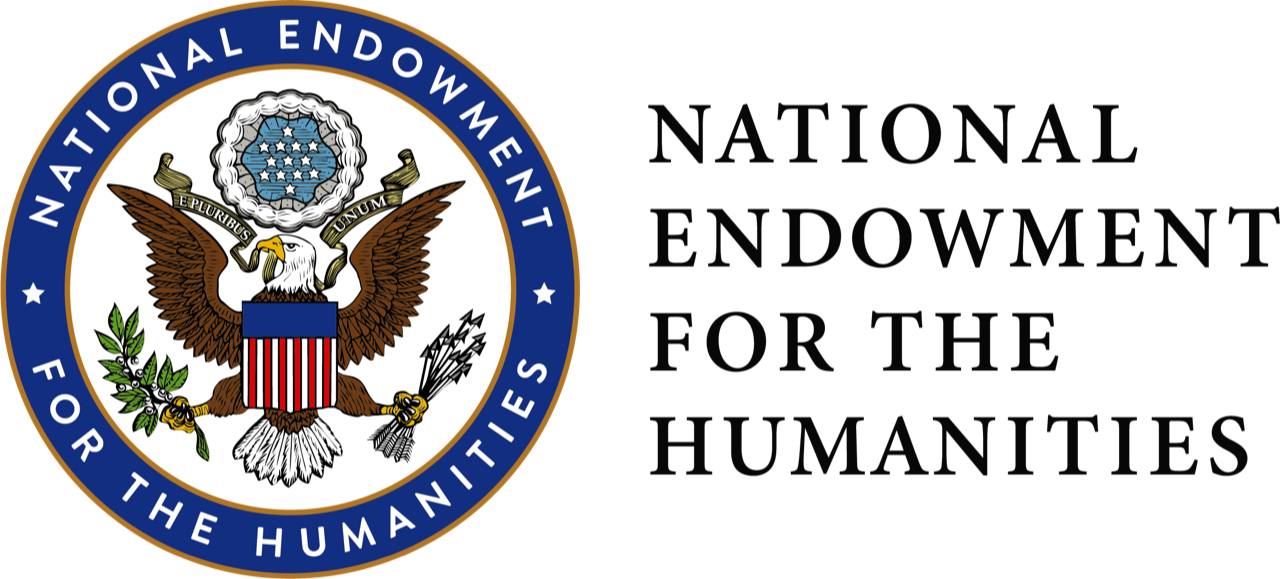
Jerusalem Conference, November 2019
Jerusalem Conference

- Location: Hebrew University and the National Library of Israel
- Date: November 18 and 19, 2019
- Participants: Roni Beer-Marx, Naomi Brenner, Michal Fram Cohen, Uri S. Cohen, Amir Engel, Roy Greenwald, Urszula Glensk, David Guedj, Matthew Handelman, Tamir Karkason, Joel Kohen, Svetlana Natkovich, Lilah Nethanel, Gideon Nevo, Shachar Pinsker, Meirav Reuveny, Giddon Ticotsky, Hansjakob Ziemer
- Organizers: Naomi Brenner, Ofer Dynes, Matthew Handelman, Shachar Pinsker
- Sponsors: National Endowment for the Humanities
This conference explored the feuilleton as a meeting place for journalism, politics and literature; a locus of urban culture; a site of negotiation for transnational identities; and a rich topic for the digital humanities. We welcomed papers from history, literary studies, cultural studies, journalism and other related fields and encourage a wide range of geographic locations, theoretical, disciplinary and linguistic approaches.
Monday, November 18, 2019
The National Library of Israel
13:30 | Welcome
13:45-15:15 | Feuilletons, Jews and Jewishness in the Modern Press
- Chair: Matthew Handelman (Michigan State University)
- Shachar Pinsker (University of Michigan): Why Feuilletons? Jewish Literature, Press, and the Public Sphere
- Naomi Brenner (The Ohio State University): What is a “Jewish” Roman-Feuilleton?
- Roni Be’er Marx (Open University): Yarketey HaLevanon: The Feuilleton in the Newspaper HaLevanon
15:30-15:45
- Eyal Miller (National Library of Israel): Historical Jewish Press
15:45-17:00 | Contexts
- Chair: Hansjakob Ziemer (Max Planck Institute for the History of Science)
- Matthew Handelman (Michigan State University): A Continuing Commentary on Politics – German-Jewish Intellectuals and the Feuilleton at the Frankfurter Zeitung
- Uri S. Cohen (Tel Aviv University): Natan Alterman and The Hebrew Press
Tuesday, November 19, 2019
Hebrew University, Jerusalem
9:00-10:30 | Workshop 1: 19th century
- Chair: Tamar Hess (Hebrew University)
- Tamir Karkason (Ben Gurion University): Feuilleton Sermons in Ladino: Two Texts of Barukh Mitrani as Test Cases (Ladino)
- Michal Fram Cohen: Elhanan Leib Lewinsky, (Hebrew)
- Lilah Nethanel (Bar Ilan University): David Frishman (Hebrew)
10:45-12:15 | Workshop 2: Turn of the Century
- Chair: Ofer Dynes (Hebrew University)
- Meirav Reuveny (Hebrew University): A. Z. Rabinovitz and Y. H. Taviov (Hebrew)
- Hansjakob Ziemer (Max Planck Institute for the History of Science): Leopold Katscher (German)
- Svetlana Natkovitz (Haifa University): Vladimir Jabotinsky (Russian)
13:30-15:15 | Workshop 3: Between the Wars
- Chair: Cecile Kuznitz (Bard College)
- Roy Greenwald (Ben Gurion University): Peretz Markish (Yiddish)
- Giddon Ticotsky (Hebrew University): Natan Alterman (Hebrew)
- Urszula Glensk (University of Wrocław): Major Literature against a Minority (Polish)
15:30-17:30 | Workshop 4: Post-War
- Chair: Naomi Brenner (Ohio State University)
- David Guedj (Ben Gurion University): Three Types of Feuilletons in Morocco during the First Half of 20th-Century
- Amir Engel (Hebrew University): “Luach Ha-arets” (Hebrew)
- Joel Kohen: Fritz J. Raddatz (German)
- Gidi Nevo (Ben Gurion University): Ephraim Kishon (Hebrew)
17:30-18:00 | Next Steps
- Naomi Brenner (Ohio State University)
- Ofer Dynes (Hebrew University)
- Matthew Handelman (Michigan State University)
- Shachar Pinsker (University of Michigan)
Presentations on Monday provided contexts for discussion on Tuesday, which focused on specific texts or sets of texts that are related to the feuilleton. The conference included sessions with 20 minute papers, and workshop sessions on Tuesday consisted of 10-minute presentations about specific texts followed by extensive discussion. Texts were presented in the original language, with selections translated into English.
This conference has been made possible in part by a grant from the National Endowment for the Humanities. Any views, findings, conclusions, or recommendations expressed in this conference do not necessarily represent those of the National Endowment for the Humanities.

